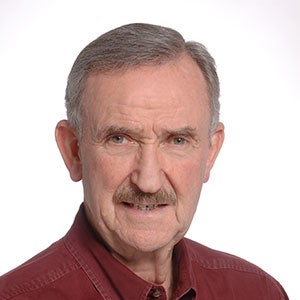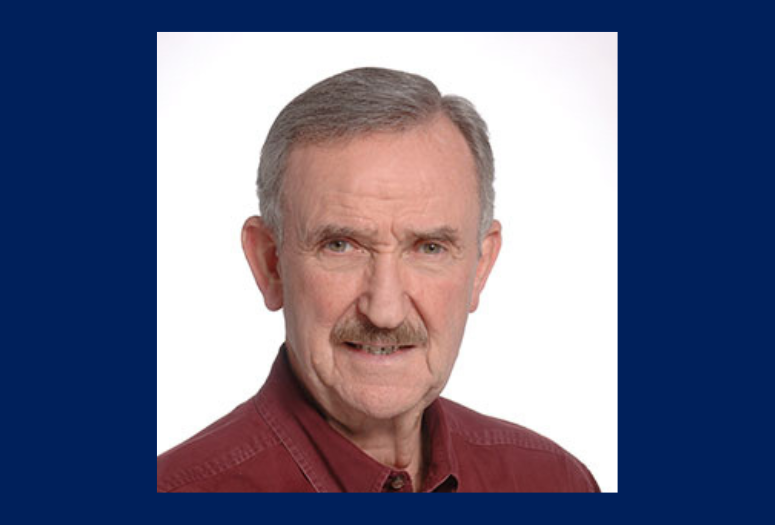
Calvin “Herb” Ward, an Air Force veteran whose career at Rice spanned more than half a century, died Dec. 28 at the age of 90.
Ward was the Foyt Family Professor of Civil and Environmental Engineering emeritus and a professor of ecology and evolutionary biology emeritus. He began his career at Rice in 1966 and retired in 2013, though he remained active with the civil and environmental engineering department.
“This is a huge loss to all those who knew and benefited from his mentorship and friendship, as I did, and to environmental science and engineering,” said Pedro Alvarez, the George R. Brown Professor of Civil and Environmental Engineering and director of Rice’s Nanosystems Engineering Research Center for Nanotechnology-Enabled Water Treatment.
He began his academic career at the Air Force School of Aerospace Medicine, where he was a research scientist, physiologist and director of bioregenerative life support systems research. He served in the U.S. Air Force Reserve from 1955 to 1968 and was on active duty from 1960 to 1963.
The National Academies of Science and Engineering named Ward a national associate in recognition of his contributions to the National Research Council in 2004. He also created the international journal Environmental Toxicology and Chemistry, where he served as the founding editor-in-chief and then the co-editor-in-chief in 2012.
In 1981, NASA presented Ward with an achievement award in recognition of his “distinguished performance in analysis and preparation of the space shuttle impact statement. The Society of Environmental Toxicology and Chemistry created the Herb Ward Distinguished Service Award in his honor in 1998.
Ward served as director of the Department of Defense-funded, Rice-led Advanced Applied Environmental Technology Demonstration Facility ; co-director of the Environmental Protection Agency’s Hazardous Substance Research Center/South and Southwest; director of Rice’s Energy and Environmental Systems Institute; director of the National Center for Ground Water Research, an EPA exploratory research center of excellence at Rice; and director of the EPA Superfund University Training Institute.
Ward’s colleague, Mason Tomson, professor of civil and environmental engineering, recalled that he was often at work by 6 a.m. and typically worked on Saturdays to catch up on reading, editing and writing. Ward authored or co-authored more than 200 publications that have appeared in peer-reviewed journals, books and conference proceedings, according to his academic resume. He also helped write or co-edit 30 books and monographs.
Ward traveled all over the world lecturing, consulting and advising individuals, companies and governments. There were times when he would fly from Washington, D.C. to Houston to give a single lecture and return to Washington on the same day, Tomson said.
“Although most thought of Herb in terms of his savvy leadership and judgment, I knew him to be a brilliant and thoughtful scientist with similarly sound technical advice,” Tomson said. “His leadership style was ‘old school.’ Anyone could ask him for advice, financial support, or personal help, large or small. He never said ‘no,’ and I do not think there was anything that he could not make happen, and regularly did.”
Ward was the chair of the search committee that hired Qilin Li, professor of civil and environmental engineering and co-director of the NEWT Center. She described him as “an extremely intelligent, wise and respectful colleague.”
“He will always be in our memories and will be known to future students and colleagues through the Herb Ward Distinguished Lecturer Series,” Li said. The lecture series is a multidisciplinary event that brings notable research leaders to campus.
Ward earned his bachelor’s degree in agriculture and biology from New Mexico State University, a master’s and doctorate from Cornell University, and a Master of Public Health from the University of Texas.

